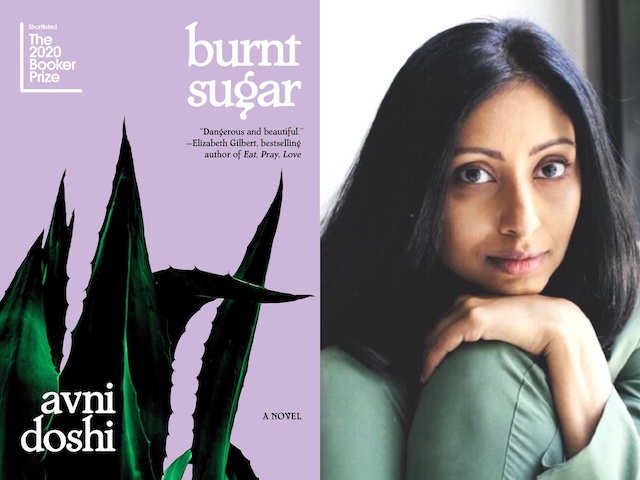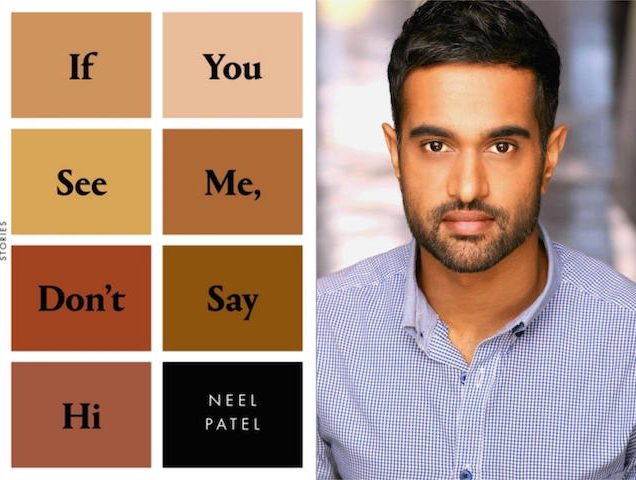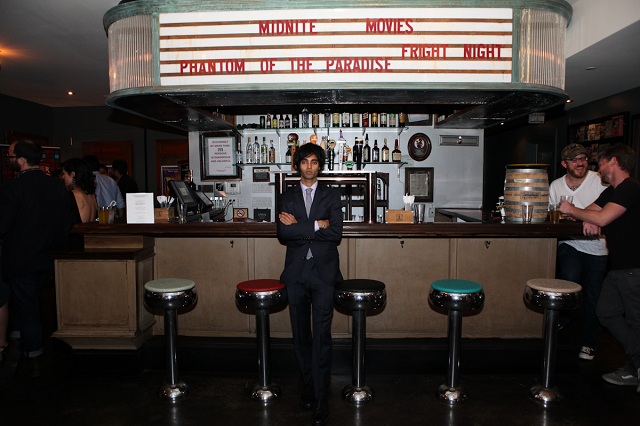‘The Daily Show’ correspondent Hasan Minhaj talks to Ashok Kondabolu about his new one-man show, ‘Homecoming King,’ running away from John Kasich, and the role of comedians in the age of Trump.

December 7, 2016
I first met comedian and The Daily Show senior correspondent Hasan Minhaj in 2013 at the Roxy nightclub, back when he was still living in Los Angeles. We were on tour with Das Racist and the show was during the day, towards the end of a West Coast slog that left us all feeling hazy and out of sorts. I’d seen a few videos of him doing stand-up, so I recognized his incredible head of hair and giant eyes walking into the green room almost immediately.
Two years later, Hasan and I were sitting in the staggeringly bright green room of the Cherry Lane theatre in downtown Manhattan. I had just finished watching his one-man show Homecoming King and he was still juiced out of his gourd on post-performance adrenaline. I proposed we do an interview and after the customary round of delays and “circling-back” emails, I caught him a half-hour after receiving an “Architects of Change” award from the South Asian American non-profit Chhaya. He was wearing a tux and destroying a burrito in a Dos Toros in midtown. We went on a 2-mile walk to the Daily Show offices where I knocked out this interview with a tired but always gracious Hasan.
GoatFace Comedy, your old supergroup—
Dude.
Super underrated comedy crew.
For real? You actually believe that?
Me and my brother have watched Drazen Press Conference many, many times. Is sketch still something you wanna pursue?
Dude. So, Aristotle [Athiras]’s basically the Phil Jackson of the group. He was the one who came up with the idea. He’s a little bit older than me, Fahim [Anwar], and Asif [Ali]. He’s the one who basically sat all of us down one night at Du-par’s, this diner in LA. We’re basically auditioning for the worst stuff, and he’s like, “How many more shitty Toyota Prius commercial auditions are we gonna go to? We cannot do this anymore.” And then we got into this big, long conversation about: is it hack to do a South Asian sketch show? The way blogs cover person-of-color content is very different than it was even four, five years ago when we first started putting it together. That was a big debate.
In that way that in the early 2000s, there would be like, Ludakrishna, and it would be a popular song with Indian content?
Ari was so great. I remember he was so pissed at Du-par’s. He slammed his fist on the table and he was like, “I don’t give a fuck if anyone thinks it’s hack! We gotta make shit that we think is funny. And, fine, if we’re brown, and it does involve a South Asian theme, like 1-900-GOOD-SON, the hotline dads call to hear they have good sons, that doesn’t make it any less funny.”
Right. And then the sketches where it’s not integral that you are brown will just show how brown people can be people like anybody else!
Yeah! And then we would get into these meetings. This was heartbreaking, where people would ask, “Can you add a white girl? You know what you could do: add a Latina girl!” I have no problem with that, but the thing is, you would never do that to Wu-Tang Clan. There’s a unique chemistry, you know? It felt like they wanted us to do Making the Band and that sucked. That chips away at you. We would fund all of this stuff ourselves, so we’d put up our own money, which is really hard.
How was your time in LA?
Sad, man. It was depressing. It was not a good time of my life. Ugh.
I’m not overly familiar with it. I mean, I’ve just been there to do shows. I never really got a feel for it.
I didn’t like it at all. It feels like Groundhog Day. There is a very homogenized experience, especially in this basically 10- or 15-mile radius of Los Angeles proper. Everybody’s kind of trying to do the same thing. And the fact that the weather [never] changes, you have no concept of time either. It felt, for me, like I was living in this weird dream, and nothing was changing. I actually do want change. I want to get better at things, I want to evolve as a human being. It did not feel that way.
Tell me about your love of sneakers.
Oh, I’ve loved them since I was a kid.
Do you know all the Jordans by sight?
Dude, I know ’em by sight. Yeah, you could put anyone up in front of me. Pretty much, up until probably Jordan 20… ‘Cause now they’re at Jordan 31.
Right.
I mean, we grew up in the same era so you know how important sneakers were. I know that it can be also kinda wack and corny when you see a bunch of kids waiting outside of the sneaker shop. I’m admitting to that. It’s like, full submission to that fact. The thing I do appreciate about it is that even when I was working at Safeway or OfficeMax, getting a $150 or $200 pair of sneakers was a doable thing. It’s cool that that thing connects you to both levels of economics. Like, Jay Z wants to wear Jordans and a kid who works at OfficeMax wants to wear Jordans, and ostensibly, you’d wear the same thing. Whereas, I can’t wear a Breitling watch.
Right. It’s an accessible thing.
Yeah, accessible luxury for everybody.
After roasting the roomful of congresspeople at the RTCA [Radio & Television Correspondents’ Dinner], what was the backstage scene like?
Backstage, dude, I ran. Me and Beena [Minhaj, Hasan’s wife] ran.
You ran?
We ran for it.
Holy shit.
Yeah, she came with me and then we looked at each other like, “We gotta get the hell out of here.”
Just got off stage?
If you actually watch the C-SPAN link, not the YouTube link, like the C-SPAN dot com backslash Hasan Minhaj backslash whatever, you can see the full thing where I’m running from the dais and then John Kasich stops me and started talking to me, and I was like, “Yeah, yeah, yeah, yeah.”
Kasich, come on!
I was like, “Dude, I gotta get out of here.”
Not doing this for you!
Yeah, I was like, “Dude, I gotta get out of here. Everyone wants me dead.”
Do you feel like you might have blown a chance at a White House correspondent dinner now?
No, but I heard this piece of advice from [Larry] Wilmore: “You’d never get invited back anyways. So just say what you wanna say.” I was even talking to your brother [Hari Kondabolu] about this. Your brother’s like a big brother to me. I’ve been doing this since I was 18, I’m 31 now, so it’s been a long journey. In comparison to some comics that have been 25 years in, I’m kind of a baby, like 12, 13 years. But, I don’t know if you feel this way, I kind of don’t have anything to lose. I’m in my 30s, I’m married, what does it matter? I’m not gonna be Zac Efron. That time passed.
Right. Might as well be very genuine.
I’ll do what I do. Even sometimes when I read really mean YouTube comments on some of my stuff, I’m like, “Eh.” Right? They’re like, “You’re a piece of shit.” And I’m like, “Yeah. It is what it is.” I can’t do anything about that. The chassis on the car’s pretty set.
How into politics were you before joining The Daily Show? Did you have to bone up?
Super surface level. I would call it USA Today level. Like, “Oh, okay! Got it, okay! That major thing happened.” I did not know a ton about Congress beyond what I had learned in high school. I did study political science but I was like a lot of kids: “I’ll retain the information and then forget it.” I was super overwhelmed, I’m lucky that they hired me, but it wasn’t like, “Yo, you’re hosting the show.” Basically, I’m just coming off the bench. They use you maybe once a week and then you write it together, so you work with the writers. There’s a learning curve. I was lucky enough that I could just watch Jon [Stewart]. And then, in the morning meetings, I could see all the clips and all the new stories come in. So, I felt like I was learning in real time.
Do you come up with the ideas for your own–
For my stuff, yeah. For a lot of it. Like, 70 percent of it.
Oh, wow. So, you bring a list of ideas to the writers?
Yeah, and I’ll send it out on the pitch list. And then it will either make its way up or it will die.
So if you don’t come up with your own good ideas, you might just be doing—
‘Cause then you’re just waiting for somebody else to write stuff for you.
Right. So it’s not like SNL. This is probably more preferable coming from a stand-up background, right? Because you’re just used to writing your own stuff.
Also, I kind of start this way, where I know what I wanna say and then I’ll just reverse-engineer it to make it funny.
What do you mean?
I know the point that I’m trying to show and then if a new story lines up with that, it’s like, “Okay, that’s the thing. That’s the vehicle to get me [there].”
What was your experience with watching and consuming one-man shows before Homecoming King?
I had seen some of [John] Leguizamo’s stuff, [Mike] Birbiglia’s stuff and, oddly, the Mike Tyson one-man show. I wasn’t a super big connoisseur of it, but I remember when I had seen some of those and started to go to Moth events, and I was like, “Oh man, that suits my strengths more.”
For five or six months, I was anxiety-ridden. I was like, “I can’t do this, I’m gonna be a cornball.” But I was like, “Fuck it.”
How is it different from doing stand-up? Like, the vulnerability of it. Was it worse or less?
Yeah, I think it’s definitely more vulnerable. It won’t work if you half-step. I remember talking about it with my director, and he’s like, “You can’t think about how people are gonna react to it. You just have to do it.” I know that’s scary, and there’s no way to hide the way you can in stand-up, where you can be sort of coy or dismissive.
Right, or even meta about it.
Yeah, if you’re telling a narrative story, you can be funny within it, but there’s only so far you can be about making fun of the medium if you’re being yourself.
How do you get into the character of “Hasan Minhaj,” The Daily Show correspondent? Do people on the street act “wacky” with you? Does the duality of playing that character leak into your normal life?
I’m not very good at character work so I just do a hyper-coffee version of myself. That’s my “character.” Sadly, I wish I was better at disguising myself in other characters.
I’ve always wondered this: when you do remote segments and people come up to you and they’re willing to talk, people are already familiar with The Daily Show and that they’re gonna be maybe portrayed in a certain way that’s not flattering—
They’re gonna be made fun of.
Do people just want to be on TV?
Correct.
Okay. [Laughs] That’s it, right?
Hundred percent. A hundred thousand percent.
Do you ever have to suss out if someone is genuinely behaving in a way that’s… you know?
Yeah. The worst people are the “I-know-what-you’re-doing” people. Neither of us are benefitting. You’re putting on this weird farce. No one’s benefitting here. But I’m not trying to chase you down. Look, if you wanna talk, talk. If you don’t, I think it’s best for both of us that we just don’t do this.
Right.
I really love this: Stephen Colbert was being interviewed for Sirius and they asked, “What was the Donald Trump interview like?” And he was like, “It was kinda boring. He acted very well-behaved and he didn’t play along with anything.” And they were like, “Well, you could expect why he wouldn’t play along.” And he said, “I completely agree with what you’re saying. But here’s the thing: I only hold you to the standard that you portray yourself as. So, if you’re gonna say all these ridiculous things, just be that dude.” Don’t all of the sudden be the opposite.
Right. What am I gonna do? Beg?
Yeah, but it’s also wack. The thing I’m holding you to are your actual words and what you say and what you do.
Were you watching the [Presidential election] poll results at the office?
Yeah, we were at the office when the election results were coming in. It was crazy because we had a live election night show planned for that night. So our scripts and jokes were all about Trump losing, the Klan having to go back into hiding, and Hillary breaking the glass ceiling. But as state results were coming in and Trump won Florida, and Michigan, and Wisconsin, everyone at the show had to toss out our entire [script].
What was the feeling in the room as the night went on? Was it disbelief, or did following the election so closely prepare you for this possibility?
No one was prepared for this. No one. People in the hallways were pacing back and forth, “What the hell is going on?” I felt like I was in a weird dream, because I had seen storylines like this in The Simpsons and movies. It was like I was living in a sketch.
What was your first conversation with your parents like after the news? Are you concerned for them?
I called my dad and he was like, “This is politics, Hasan. These things happen.” And then I called my mom who is in India with my nani and she was like, “What is going on? We have to move up my flight.”
I’ve heard a lot of critics talk about how a Trump presidency will be “good” for comedians and programs like The Daily Show. I know you don’t think in those terms exactly, but how do you think something as catastrophic as President-elect Trump [will] be met by you and The Daily Show?
For me, personally, I hate hearing the “Hey, this is good for business,” argument because the collateral damage of world events hurting civilians for comedic fodder rubs me the wrong way. Trump’s ascension and the way he’s filling out his cabinet is unlike anything we’ve ever seen before. It’s not a good thing. Steve Bannon, Omarosa, and Rudy Giuliani being in the White House doesn’t make me laugh in the slightest.
What do you feel your responsibility is as both a comedian and a conduit for real news, particularly now?
I think it’s our job to hold people’s feet to the fire. The thing that upsets me the most is that people in media are already accepting this as the new normal. People don’t want to call Steve Bannon a “racist,” they’d rather call him a “firebrand,” a “provocateur.” And I think it’s our job on the show to highlight how insane that is. What worries me the most is that certain news outlets and public figures are going to start falling into line and “accepting Trump” and asking that “we give him a chance.” And I’m sorry Oprah, he’s done nothing to earn our respect and trust. Especially if you’re a minority in this country.



